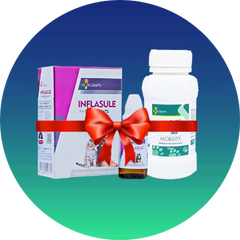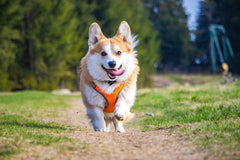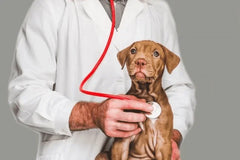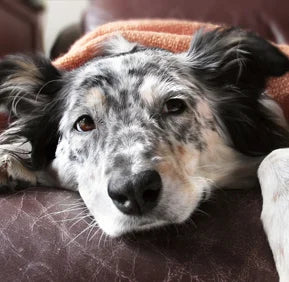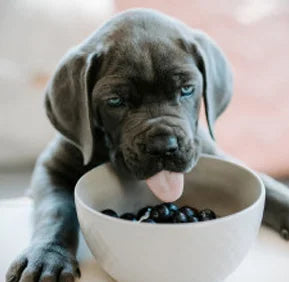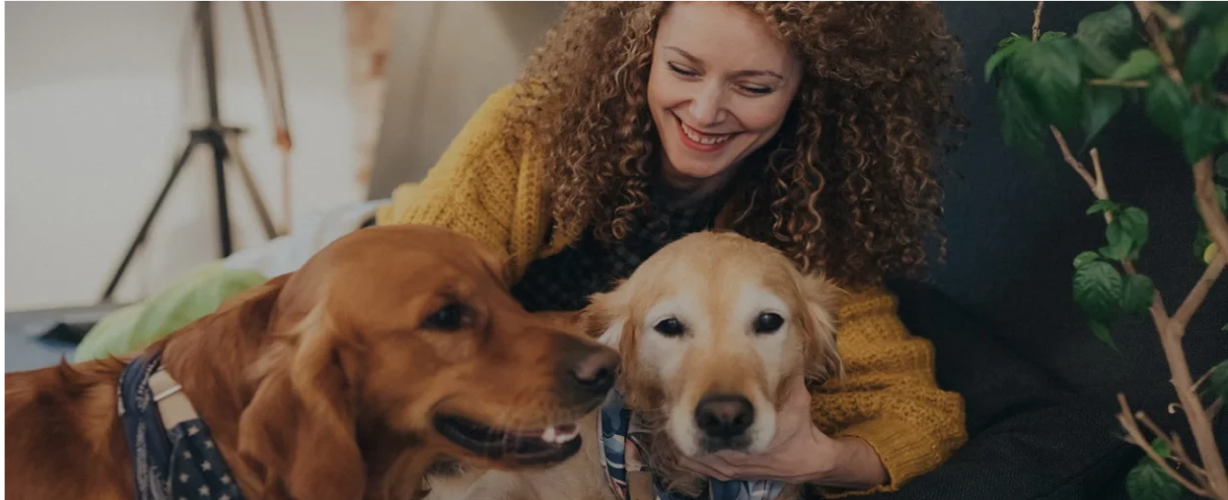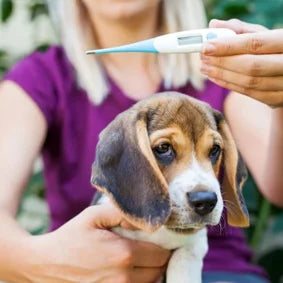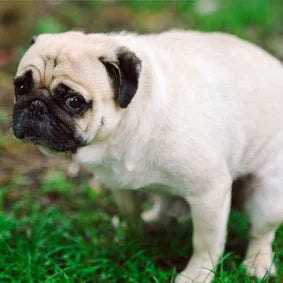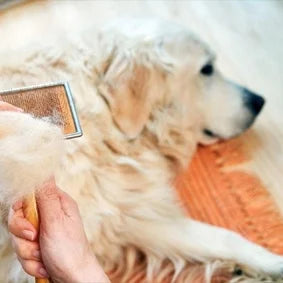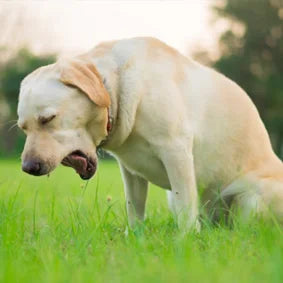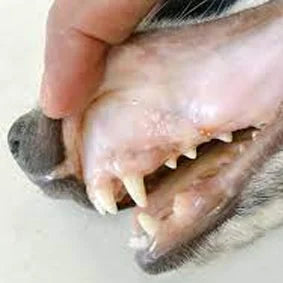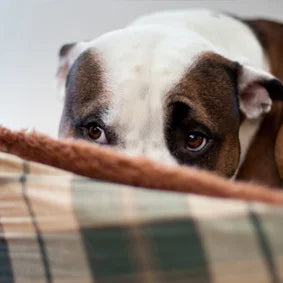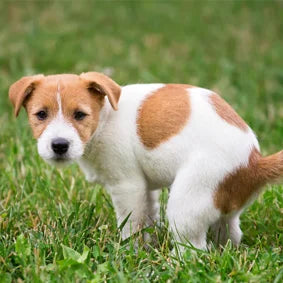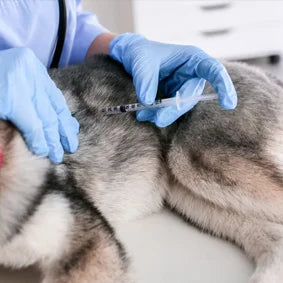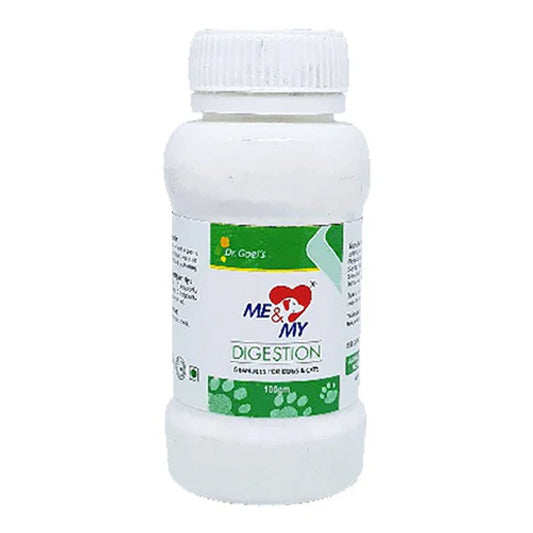Is your pet often facing symptoms like vomiting, stomach ulceration, and other liver-related problems? Liver diseases in pets can be quite severe and pose a great threat to their health. As and when pets grow up, their liver functions can start to deteriorate and cause a multitude of issues for them.
Indigestion in pets can be caused by a variety of factors, and pinpointing the exact cause is essential for appropriate treatment. Here are some common causes of indigestion in pets:
-
Dietary Indiscretion
Pets, especially dogs, may eat things they shouldn't, such as spoiled food, garbage, plants, or foreign objects, leading to gastrointestinal upset.
-
Sudden Diet Changes
Abrupt changes in a pet's diet can disrupt their digestive system and lead to indigestion.
-
Food Allergies Or Intolerances
Some pets may develop allergies or intolerances to certain ingredients in their food, leading to digestive issues.
-
Infections
Bacterial, viral, or parasitic infections can affect the gastrointestinal tract, causing symptoms like vomiting and diarrhoea.
Tips for preventing Liver problems in pets
Protecting your pet from liver issues is vital. Offer a balanced diet, regular check-ups, updated vaccinations, proper hydration, and healthy habits. Reduce stress and avoid abrupt dietary changes. These steps greatly lower the risk of liver problems, ensuring your pet’s well-being.
Symptoms of Liver Problem in Pets
Indigestion in pets can have various symptoms, and it’s essential to observe your pet closely if you suspect they are experiencing digestive issues. Here are some common symptoms of indigestion in pets:
-
Vomiting
Occasional vomiting might not be a cause for concern, as pets can vomit for various reasons. However, if your pet is vomiting frequently or if the vomit contains blood or looks unusual, it could be a sign of indigestion.
-
Diarrohea
Loose stools or diarrohea can indicate that your pet's digestive system is not functioning properly. Like vomiting, occasional episodes may not be alarming, but if it persists or is severe, it warrants attention.
-
Loss Of Appetite
A decrease in appetite or a complete loss of interest in food can be a sign of indigestion. If your pet is not eating for an extended period, it can lead to other health issues, so it's essential to address this symptom promptly.
-
Abdominal Discomfort
Pets with indigestion may display signs of abdominal discomfort, such as restlessness, pacing, or vocalizing when their belly is touched.
-
Excessive Gas
Just like humans, pets can experience gas and flatulence when they have digestive issues.
-
Lethargy
Digestive issues can make pets feel uncomfortable, leading to reduced activity levels and increased lethargy
-
Bad Breath
Foul-smelling breath could be an indication of indigestion or other dental and digestive problems.
-
Regurgitation
Pets with constipation may frequently lick or bite their anal area in an attempt to alleviate discomfort or irritation caused by the condition.
-
Changes In Bowel Movement
Apart from diarrhoea, pets with indigestion may experience other changes in their bowel movements. This could include constipation, straining to defecate, or producing small, hard stools.
-
Gurgling Or Noisy Stomach
Pets with indigestion may have increased gurgling or rumbling sounds in their stomach. These noises can be a result of gas or fluid moving through the digestive tract.
Trusted by Veterinarians
“As a veterinarian, I am thrilled to endorse Dr. Goel Vet Pharma’s homeopathic products for our furry friends. Their commitment to advancing homeopathic veterinary medicine is evident in the exceptional quality of their products. The innovative solutions they provide have significantly enhanced our ability to care for our animal patients, ensuring optimal health outcomes. I highly recommend Dr. Goel Vet Pharma’s products to pet parents for their unwavering dedication to the well-being of pet animals and the invaluable support they offer to the veterinarian community.”
– Dr. Sakshi Sharma (B.V.sc. & A.H. M.V.Sc , NET)
Treat your pet Liver Problem with Dr.Goel's Livomate
The best way to find out if your pets really have any liver issues is to get them immediately checked by a veterinarian and get all lab tests done accordingly. Once you’ve figured out the real cause or if your pet has a liver-related issue or not, you can move on to the solution of this problem – Dr.Goel’s Livomate.
Livomate is a unique homeopathy medicine that helps to build your pet’s immunity, restores the damaged liver or its dysregulated functions, decreases levels of cortisol and increases your pet’s appetite. This homeopathy remedy is 100% safe for pets, is laboratory tested, certified and totally free from side effects.








Me & My DIGESTION
GRANULES FOR PETS ( For Indigestion in Pets )
Me & My DIGESTION Pet Supplement is a unique formula of valuable supplements for Dogs & Cats that help maintain the gut health of your lovable pets. It thus maintains the PH of the gut during gastric disturbances like biliary obstruction, vomitions, dyspepsia, food poisoning or any other and protects your pet’s health.
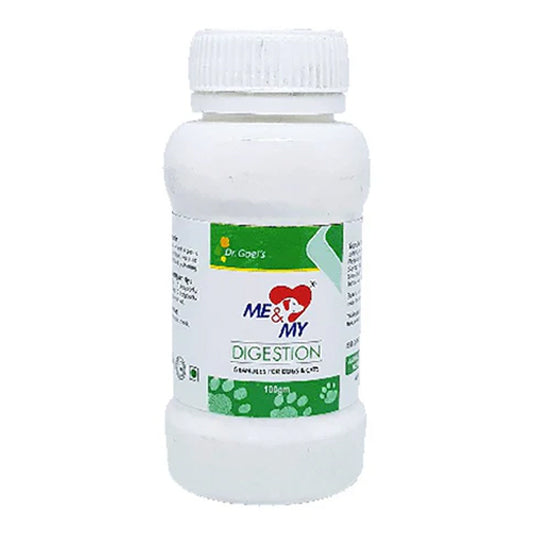
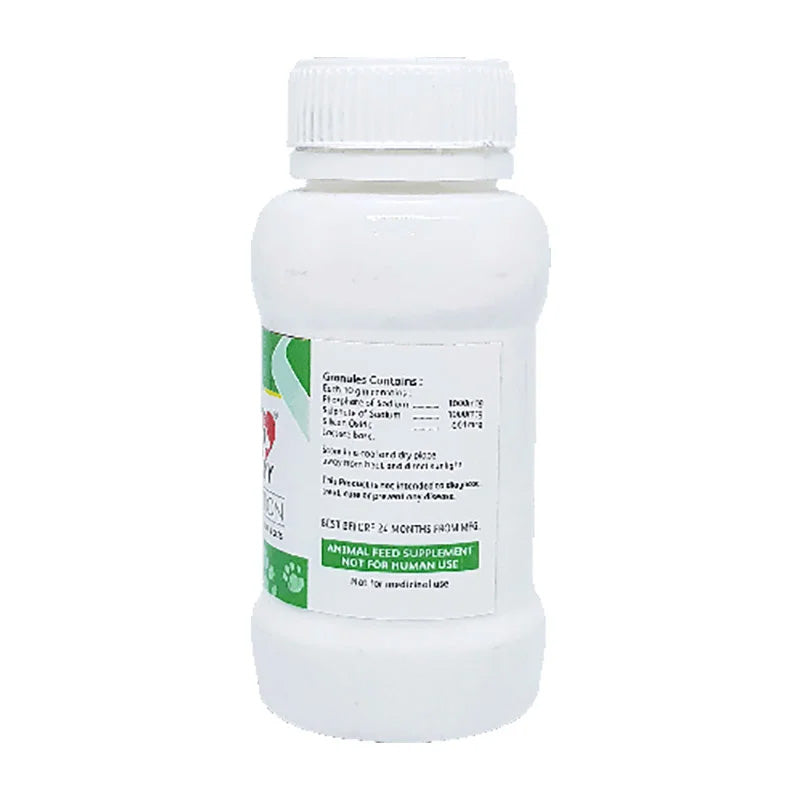
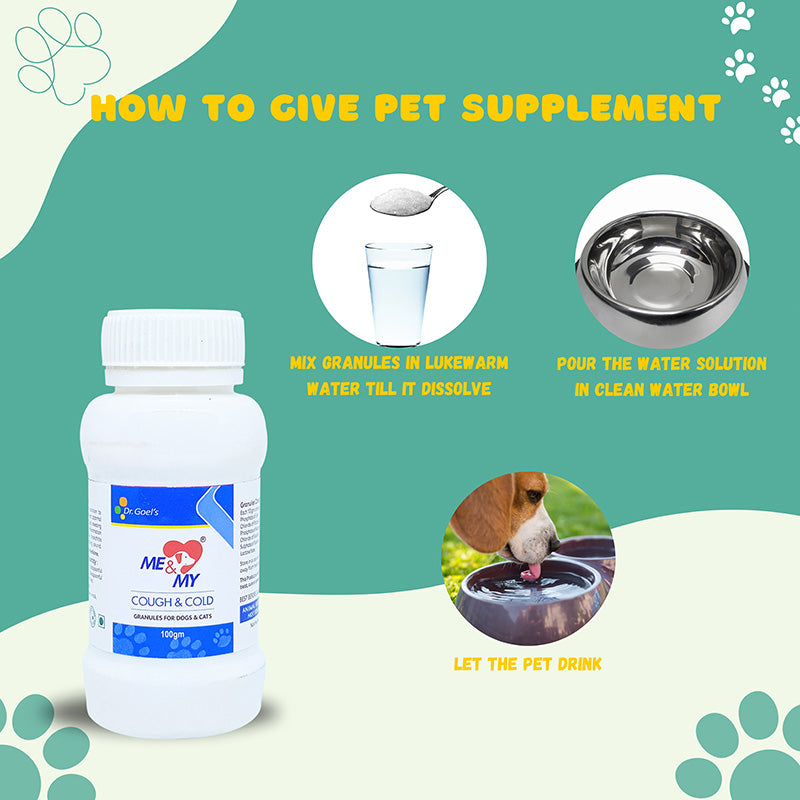
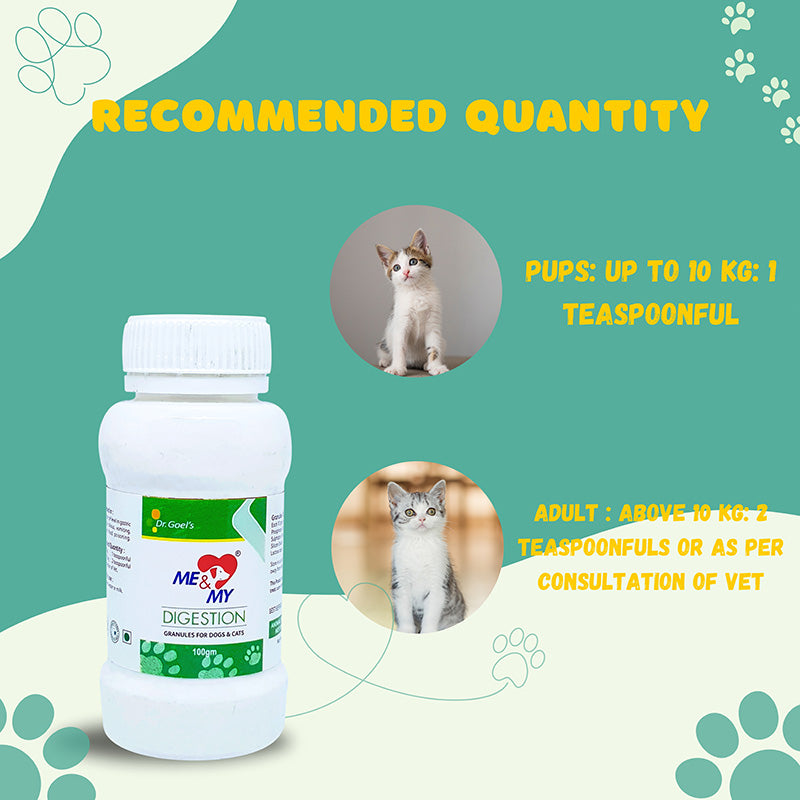
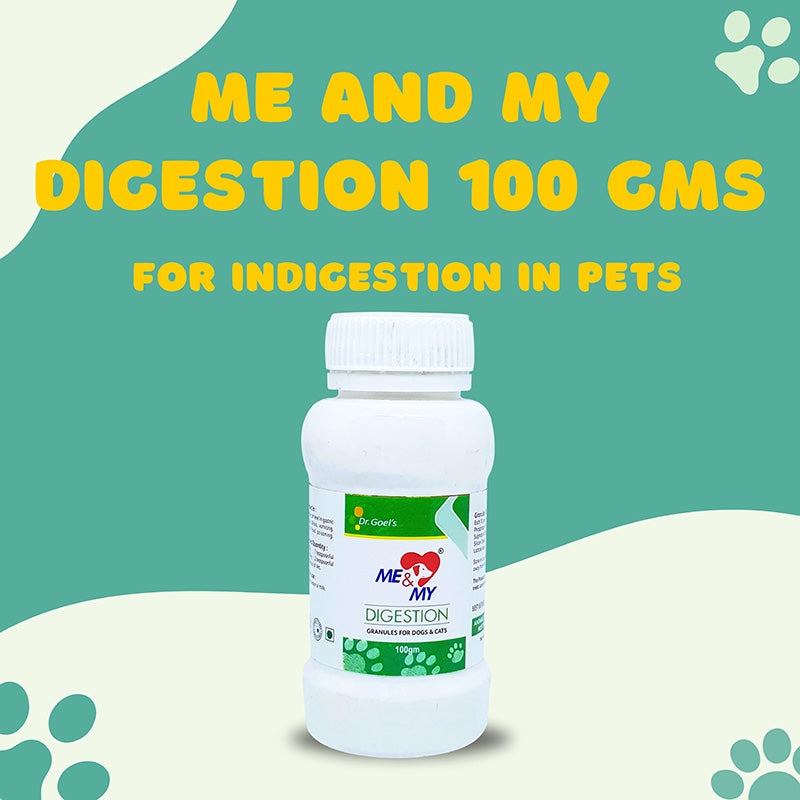
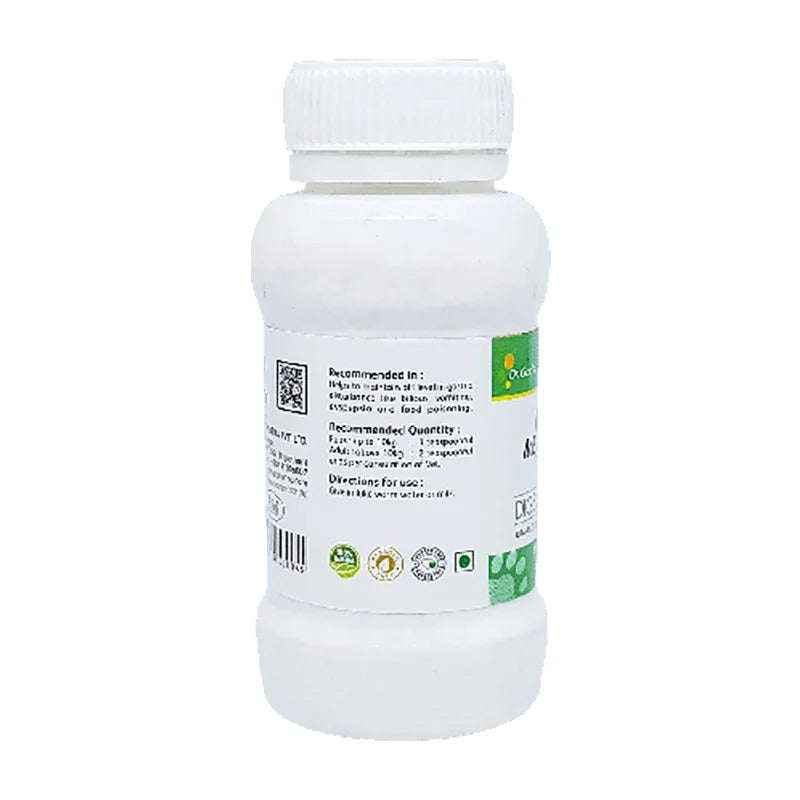
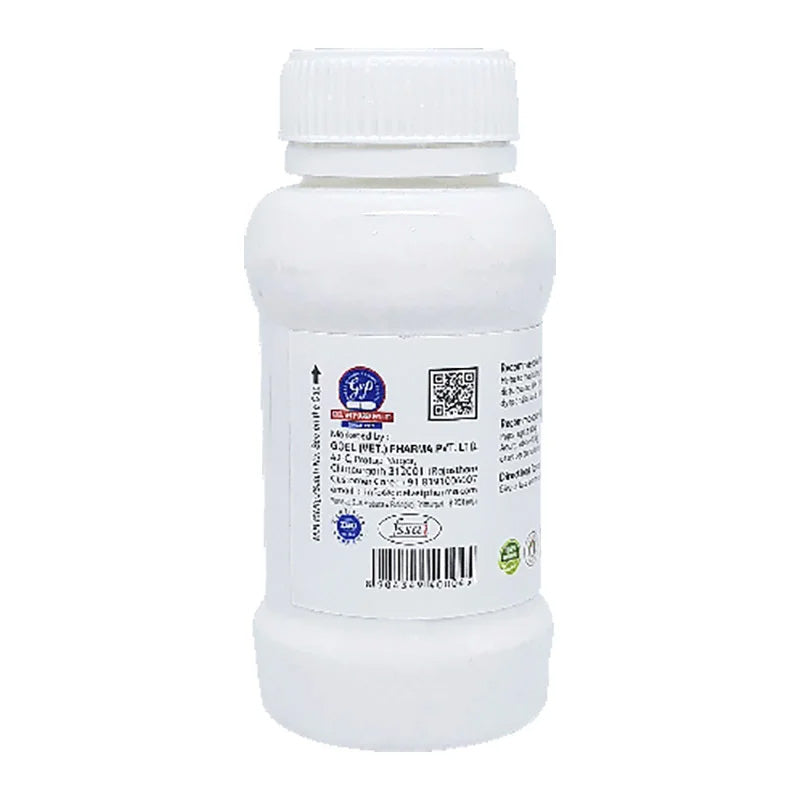
Blog posts
Frequently Asked Questions
My dog is having constipation problem. Nd pain in front legs which medicine is suitable.He doesn't eat anything by himself from last 1year.I feed him with a spoon. He also has problem in walking. He walks with a limp. Please Suggest.
Constigo for constipation issue
Livomate for liver – appetite/ faeces formation/ health.
If Arthritis– then me and my mobility + inflasule drops
Hello dr Goel. My boy is shihtzu 5 years. He is having liver problem. Gastrointestinal h ya pancreatitis h iska diagnosis abi hona h. Test krwane hai. Does Homeopathy has a cure for liver problm
Livomate drops for liver associated problems. For pancreas he’d need enzymes/powders mixed in feed.
hello sir, I have a flat coated retriever. he almost stopped eating these days. Although he seems fine, play n bark all day like normal days. my father bring some allopathic medicines. Can you suggest something.
Use Pentoff and Livomate for your pet. His appetite will be back to normal in 2-3 days
My shihtzu is eating very less from last 3-4 days?
Use Livomate and Pentoff for your pet

